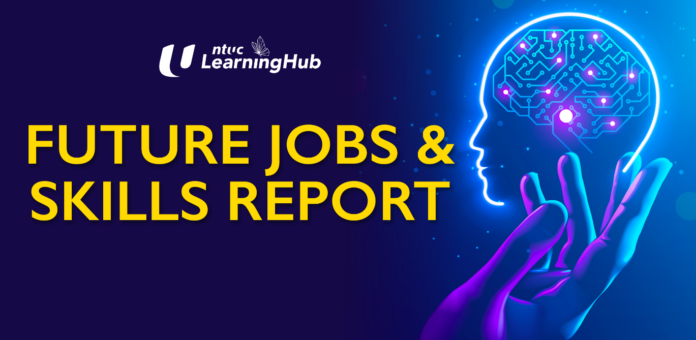The emergence of artificial intelligence (AI) has significantly impacted creativity and productivity with about nine in 10 business leaders agreeing that generative AI technologies can enhance employees’ work quality and support daily tasks.
The Future Jobs and Skill Report 2023 from NTUC Learning Hub finds that almost three in four employees are comfortable working alongside generative AI technologies, with 68% using generative AI technologies in their day-to-day work.
However, employees are concerned that generative AI technologies will replace their jobs (41%), alongside concerns over security (52%), legal and ethics (40%), their own digital fluency and proficiency (31%), and the output generated potentially having inaccuracies or biases (29%).
These sentiments are shared by business leaders, who are also concerned about transitioning their workers to higher-value job roles (40%).
Based on a survey of 650 working professionals encompassing employees and business leaders, the report explores a dual perspective on the current job market, in-demand jobs and skills, and the training landscape in Singapore.
With the rise of AI in workplaces, the survey also delved into both employees’ and business leaders’ views on this emerging trend.
Almost four in five business leaders are aware of the current use of generative AI technologies by their employees. In fact, 63% of business leaders reveal that their organisation encourages the use of generative AI technologies.
Yet, there is a discrepancy between how business leaders and employees view organisational openness towards the use of generative AI.
As compared to business leaders, only 41% of employees say that their organisation encourages the use of technologies at work to a large or moderate extent.
According to business leaders, the top opportunities presented by generative AI are AI-powered chatbots (59%), personalised customer experience (58%), and price optimisation (45%).
Similarly, employees recognise the advantages of generative AI, with its ability to analyse complex data (48%), generate ideas, designs, and content (47%), and customise work based on requirements given (40%), seen as the top benefits.
Sean Lim, chief HR Officer at NTUC, said that investing in relevant employee learning and development is becoming increasingly crucial with the advent of advanced technologies like generative AI.
“Besides ensuring that employees are equipped with the technical know-how, having learning agility, for example, is an important critical core skill or soft skill as it involves being open to new knowledge and enables one to learn, adapt, unlearn, and relearn to keep up with constantly changing conditions in the workplace,” said Lim.
He said that, to ensure successful and safe integration of AI at the workplace, it is essential that employers adopt an ’employee-centric’ approach.
“Open communication channels and collaboration are necessary to involve workers in AI adoption and provide them with the assurance that AI will augment their jobs rather than replace them,” said Lim.
















